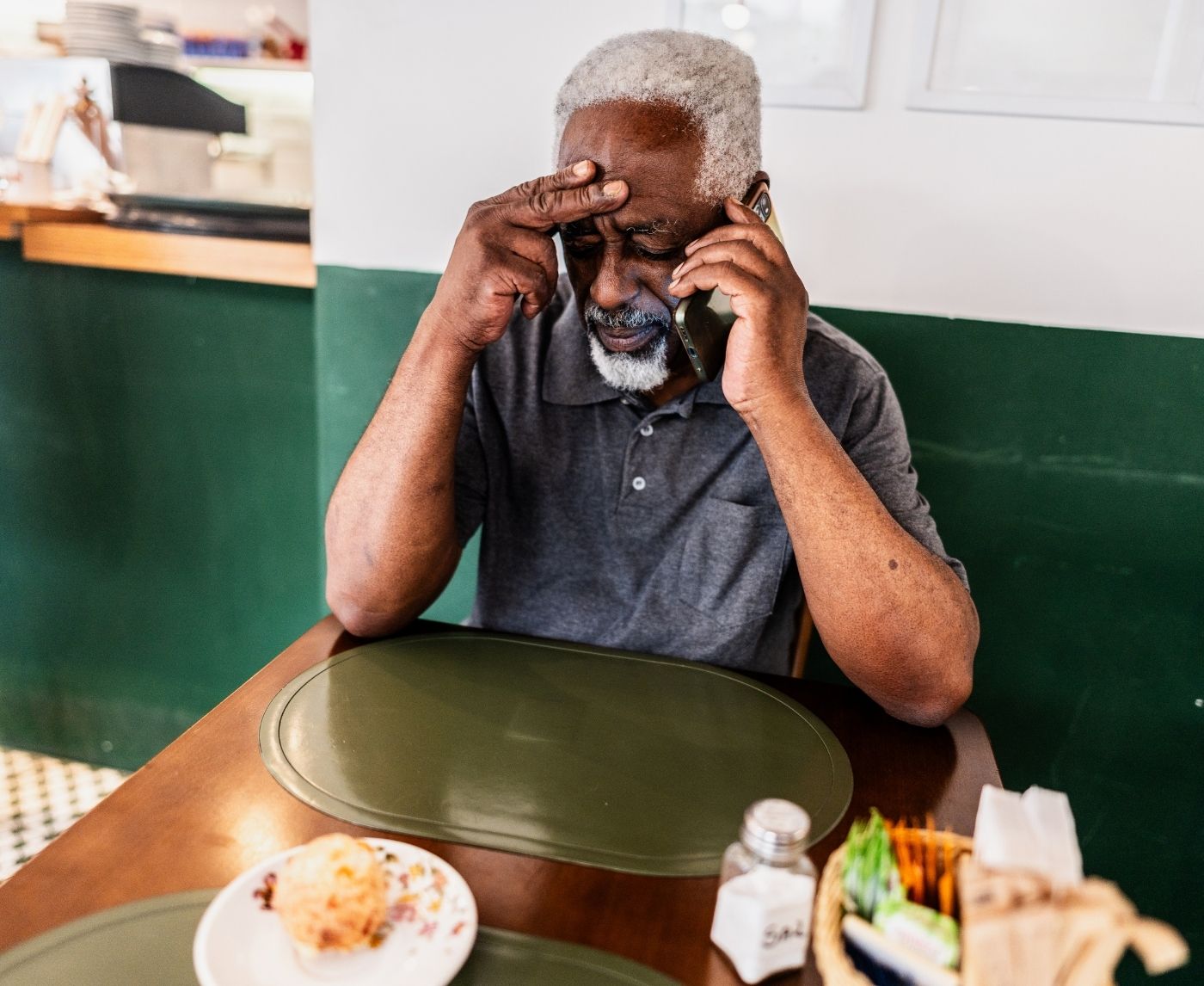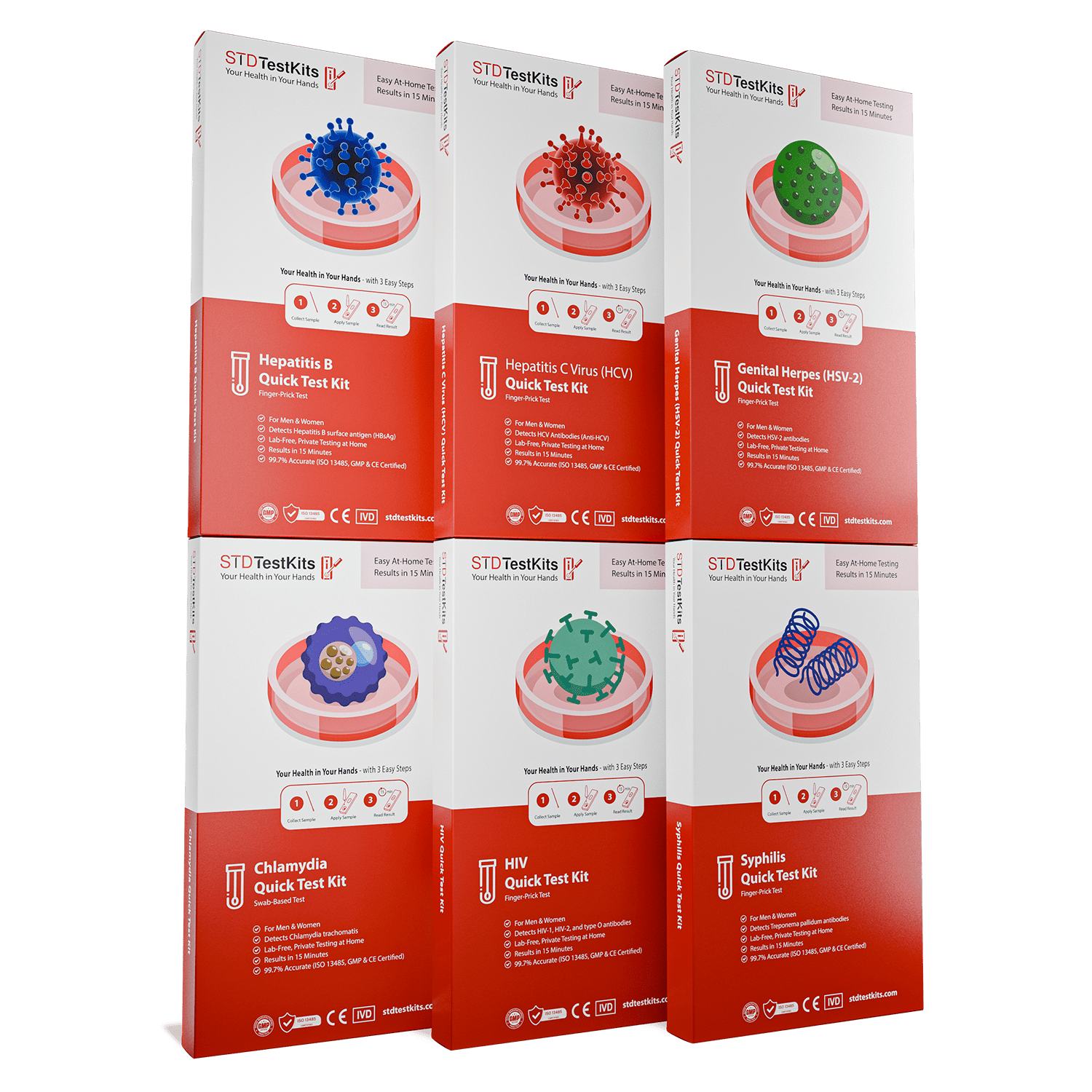How Long Should You Wait to Retest for STDs After Antibiotics?
Quick Answer: If you find out you had an STD after a hookup, it's both responsible and ethical to let that person know, even if you didn’t know at the time. You can disclose directly, or use anonymous notification tools if you’re not comfortable going face-to-face. What matters is that they have the info to protect their health.
Let’s Be Real, This Happens All the Time
Most people who transmit STDs never meant to. And many, especially with chlamydia, gonorrhea, or herpes, didn’t even know they were infected. According to the CDC, over 50% of new infections each year come from people who didn’t have symptoms at all. No burning. No bumps. No clue.
So if you’re panicking right now, take a deep breath. You’re not a villain. You’re not dirty. You’re not alone. You’re just in a hard situation that calls for courage, and a little strategy.
Here’s what this article is going to walk you through:
- Why disclosure matters (even if it was a one-time thing)
- How to actually say it (texts, calls, scripts, and anonymous tools)
- What to expect (reactions, legal concerns, your own emotional aftermath)
- How to protect your peace while still doing the right thing
This isn’t just about avoiding guilt. It’s about breaking the chain of silence, and giving the person you hooked up with the chance to protect themselves, too.

People are also reading: Should You Wait to Have Sex Until STD Results Are In?
The Guilt Is Real, But the Silence Is Riskier
Let’s talk about that gut-wrenching mix of shame, fear, and self-blame that shows up the minute you realize you might have passed something on. Maybe you’re thinking, “I should have waited for my test results.” Or “I used protection, so this isn’t fair.” Or even “Do I really have to say anything? It was just a Tinder thing.”
Here’s the truth: whether it was a one-night stand or a week-long fling, they still deserve to know. You don’t have to tell them because you’re a bad person, you tell them because you’re a good one.
Jared, 25, found out he had gonorrhea four days after sleeping with someone he met on a camping trip. “I hadn’t even unpacked when I got the result,” he says. “We didn’t exchange last names, but I still had their number. I sat on the message for two days, freaking out. Then I just said it.”
“Hey, I just got tested and found out I have gonorrhea. I didn’t know at the time, but I wanted to tell you so you can get checked. I’m really sorry.”
The response? Grateful. Respectful. Even relieved.
Most people won’t hate you for telling them the truth, they’ll hate being blindsided.
“What If I Don’t Say Anything?” Let’s Unpack That
This is the part your anxious brain might be whispering: “What if I just don’t tell them? They seemed fine. It was protected. Maybe it’s not a big deal.”
But here’s what happens when people stay silent:
- The person you hooked up with doesn’t get tested and keeps unknowingly passing it on
- They develop symptoms later, trace it back, and feel betrayed
- You carry around guilt that grows like mold in a closed closet
Silence protects no one. And if you’re worried about backlash or confrontation, there are ways to disclose anonymously (we’ll walk through them next).
But avoidance? That just keeps the cycle going, and you’re better than that.
Figure 1. Staying silent might feel safer in the moment, but it can lead to harm—physically, emotionally, and relationally. Disclosure is hard, but it stops this chain before it grows.
How to Actually Tell Them, Without Losing Your Mind
Okay, so you’ve decided to tell them. Good. That’s the hardest part. Now let’s talk about how.
Whether it was a one-time hookup or a casual situationship, you don’t have to write an Oscar-worthy apology. You just need to be honest, clear, and kind. Think less “confession booth,” more “public health heads-up.”
Option 1: Direct Message or Text
This is the most common way people handle post-hookup disclosures, especially if you’re not emotionally close. Here’s a template that’s honest, simple, and doesn’t spiral into shame:
“Hey, this is awkward, but I wanted to let you know that I recently tested positive for [insert STD]. We hooked up on [insert date], and I didn’t know at the time, I got tested after and just found out. You should get tested, too, just to be safe. I’m really sorry.”
You can tweak the tone to sound more formal, casual, or sincere depending on how you two connected. Don’t over-explain. Don’t catastrophize. Just tell them what they need to know.
Option 2: Anonymous Notification Tools
If you don’t feel safe or emotionally ready to message someone directly, there are tools that let you alert them anonymously. These are often used by clinics or health departments, but you can access some yourself.
Check out:
- TellYourPartner.org – Free, anonymous SMS or email notifications
- STDCheck Anonymous Notification – Also offers testing discounts
You just enter the person’s contact info, select the STD you tested positive for, and send. No name. No number. Just a respectful, anonymous heads-up.
Option 3: In Person or on a Call
This is rare for post-hookups, but some people feel more ethical or connected doing it face-to-face, or at least voice-to-voice. If you choose this route, stay calm and keep it about their health, not your guilt.
“I just found out I had something when we hooked up. I had no idea at the time. I wanted to tell you directly because I respect you and thought you deserved to hear it from me.”
Short. Honest. Human. You’re not asking for forgiveness. You’re offering information.
What If They Get Mad, Block You, or Freak Out?
This is the fear that keeps people silent. What if they lash out? What if they tell others? What if they think I’m disgusting?
Look, we won’t lie. Some people won’t react well. But most people? They’re scared, not angry. And even if they are upset, that doesn’t mean you did the wrong thing by telling them.
Here’s a truth bomb: you can’t control their reaction, you can only control your integrity.
If someone ghosts you, blocks you, or responds with rage, that’s on them. You did your part. You gave them the chance to get tested and take care of themselves. That’s what matters.
And if they reply with respect, surprise, or even appreciation? You’ll be reminded why honesty, even the painful kind, matters.

People are also reading: What That Herpes Test Line Means (Even If It’s Barely Visible)
“Am I Going to Get Sued or Arrested?” (Probably Not)
This question is flooding Google searches for a reason. Fear of legal consequences is real, especially with tabloid stories about herpes lawsuits or criminal transmission cases.
Here’s what’s actually true:
- In most U.S. states, it’s not illegal to transmit an STD you didn’t know you had
- Intent matters, criminal charges usually apply only if you knowingly and maliciously exposed someone
- Laws vary by state, especially for HIV. But most don’t criminalize accidental transmission of chlamydia, gonorrhea, or HPV
Still worried? You can look up your state’s statutes using resources like the Lambda Legal HIV Criminalization Map.
But let’s be clear: if you didn’t know you were infected and you disclose as soon as you find out, you are doing the ethical and protective thing. That’s not something courts tend to punish.
After You Tell Them: What Happens Next?
So you sent the message, made the call, or used an anonymous tool. Now you’re sitting in the aftershock. Maybe you’re replaying the conversation. Maybe you’re staring at the ceiling wondering if you ruined their week, or your own.
Let’s normalize this: post-disclosure anxiety is real. But you’re not just someone who “gave someone an STD”, you’re someone who stepped up when it counted.
Here’s what usually comes next:
- They may get tested, and you won’t hear back. That’s okay.
- They might thank you. That happens more often than you’d think.
- They might be mad, confused, or scared. Let them feel it, but you don’t owe them penance forever.
You did something responsible. Let that matter more than their reaction.
Give Yourself Room to Feel Everything
Even if they’re fine and get treated, you might still feel like crap. That’s not weakness, it’s evidence that you care. But guilt doesn’t need to become self-punishment.
Remember: You’re not bad. You’re not broken. You’re not alone. You’re one of millions of people navigating this. Literally millions, STDs affect 1 in 5 Americans annually. That’s more common than strep throat or seasonal flu.
Here are a few ways to work through the aftermath:
- Talk to someone: A friend, a therapist, a support line.
- Journal it: You don’t need to post it. Just get it out of your head.
- Move your body: Go for a walk, punch a pillow, do whatever helps you release the stress.
Need extra support? Try community spaces like r/STD on Reddit or hotlines like the Planned Parenthood STD Chat.
What About Retesting, Treatment, and Prevention?
If you haven’t already started treatment, now’s the time. Most common STDs like chlamydia, gonorrhea, and trichomoniasis are curable with antibiotics. Others, like herpes or HPV, can be managed with the right care.
Here’s a simple breakdown:
Figure 1. Post-disclosure care includes getting treated yourself and helping prevent further spread through retesting and safer sex strategies.
And here’s the part where we get proactive: if you’re not already testing regularly, now’s a good time to start. Regular screening helps catch things early and breaks the shame cycle.
FAQs
1. Do I really have to tell them it was just one night?
Yes, if you can get in touch with them. They still deserve to be tested and treated, even if it was just a casual hookup. It's not about how serious the relationship was; it's about health, safety, and respect.
2. What if I don't have their phone number or other contact information?
That does happen. If you met through an app, look through your chat history, even the old ones. You've done everything you can if you really can't find them. If there is overlap, you might want to let any mutual friends know quietly. You could also call your local health department; they might be able to help you let your partner know.
3. Am I going to get in trouble if I give someone an STD?
Not often. Most states don't make it a crime to accidentally spread an infection unless you did it on purpose and with bad intent. Being honest after finding out shows that you are responsible, not that you want to hurt someone.
4. How can I say it without making them mad?
Use language that is short, honest, and clear. Don't feel bad about what you did; think about their health. Try saying, "I didn't know at the time, but I just found out I was positive and thought you should know so you can protect yourself." You can't control how they react, but you can control your own honesty.
5. Is it okay to wait and see if they show signs?
That's a bad idea. A lot of STDs, like chlamydia or HPV, don't show any signs for weeks or even months. Damage can happen before signs show up. Letting them know ahead of time lets them do something early.
6. Is there a way to tell someone without saying it was me?
Yes. TellYourPartner.org and other anonymous notification services let you send a discreet text or email without giving away your name.
7. What if they stop talking to me after I tell them?
That's their problem. You have done your part. Some people are scared or try to avoid the truth, but that doesn't mean you were wrong to tell it. It's your job to be honest, not their emotional processing.
8. How long should I wait to try again?
It depends on the type of infection. Some people need to be tested again in three months, while others need to be tested again in three weeks. If you're not sure, test again after any new exposure or symptoms, or use a quick home test to put your mind at ease.
9. Can I still have sex after I tell them?
Only after you have been treated (if necessary), finished the window period, and feel emotionally stable again. Disclosure can be hard to handle, so give yourself some time before you jump back in.
10. I got a positive test result. What now?
Take a deep breath. You can get rid of gonorrhea. You can get better with just one dose of the right antibiotics. But you also need to tell your most recent partners so they can get tested as well (if they need to, there are services that can help with that). And you shouldn't have sex until you're completely better. Check again in three months to make sure it's gone and keep an eye on your health. Don't be ashamed or scared. Just do it.
You Did the Brave Thing, That Deserves Respect
If you made it this far, you’ve already shown more courage than most. Telling someone you might have given them an STD isn’t easy, but it’s one of the most honest, sex-positive, stigma-smashing things you can do.
Whether you disclosed via text, anonymous message, or in person, you gave that person the chance to protect their body and make informed choices. That’s not just responsible, that’s powerful.
Take care of yourself, too. Whether you’re still waiting on treatment, feeling emotionally raw, or ready to prevent this from happening again, start with clarity.
How We Sourced This Article: We built this guide using CDC guidance, state-level health laws, expert recommendations, and first-hand narratives shared across peer-reviewed studies and public health forums. Around fifteen reputable sources informed this article; below, we’ve highlighted some of the most reader-friendly ones.
Sources
1. Lambda Legal – STD and HIV Criminalization Laws
2. Conversation Tips – talking to partners about STIs | CDC
3. How to Share Your STI/STD Status with a Partner | Healthline
4. Sexually Transmitted Diseases (STDs): Diagnosis, Treatment & Partner Notification | Mayo Clinic
5. Strategies for Partner Notification for Sexually Transmitted Infections | NCBI PMC
About the Author
Dr. F. David, MD is a board-certified infectious disease specialist with two decades of experience in STD care and harm-reduction counseling. His writing blends clinical clarity with grounded compassion, making complex sexual health topics easier to face and understand.
Reviewed by: S. Delgado, MPH | Last medically reviewed: November 2025
This article is for informational purposes and does not replace medical advice.







